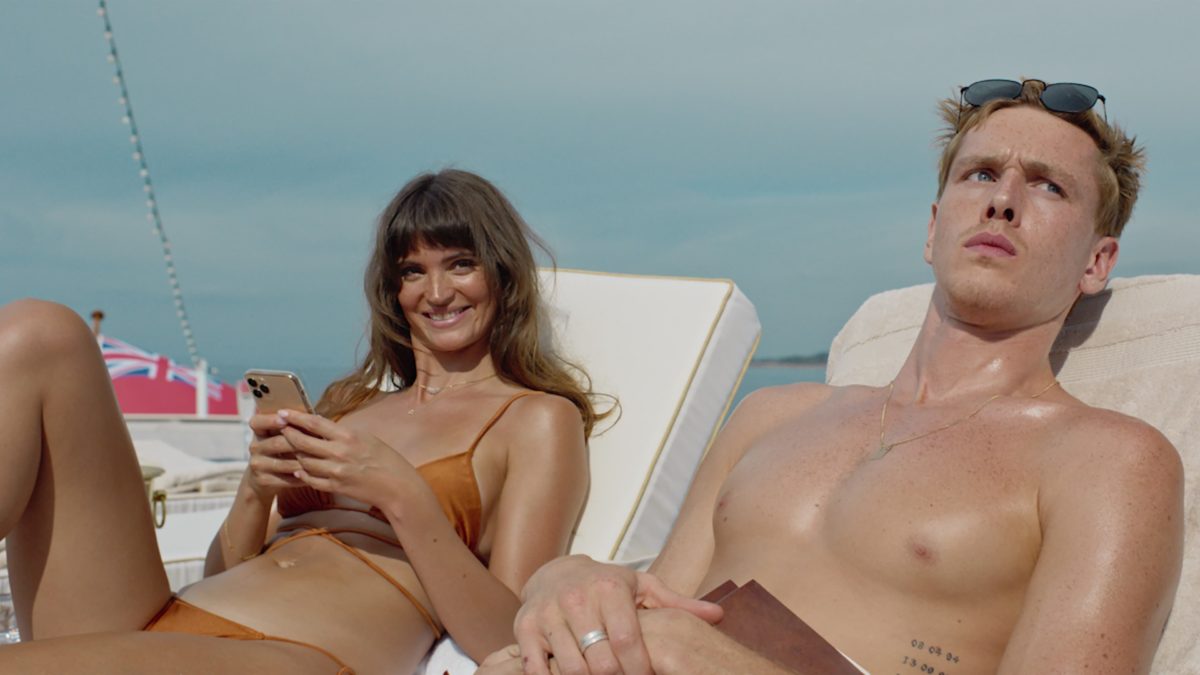The audacity of that runtime. Triangle of Sadness, the 2022 Palme d’Or winner, is a satiric comedy that runs two and a half damn hours, and it outstays its welcome. What it really resembles is a compressed HBO miniseries moreso than a prestige film. It is essentially an anthology film, broken into three chapters that tie together but each stand alone. Whatever the reason for the runtime bloat, it’s an egregious violation of Nate’s Casablanca Rule: “If you need much more than Casablanca’s 100 minutes to tell your story, you better have a damn good reason.”
The topic at hand is a critique of the ultra-rich. It is an easy target of a roast, to be sure, and I’m not sure Triangle of Sadness has anything particularly interesting to say on the topic, and certainly nothing remotely subtle or believable. But even if it’s a film without interesting ideas, it is not a film without merit, and, in spite of the grating length and unlikeable characters, I ultimately think Triangle of Sadness works as a nasty comedy.
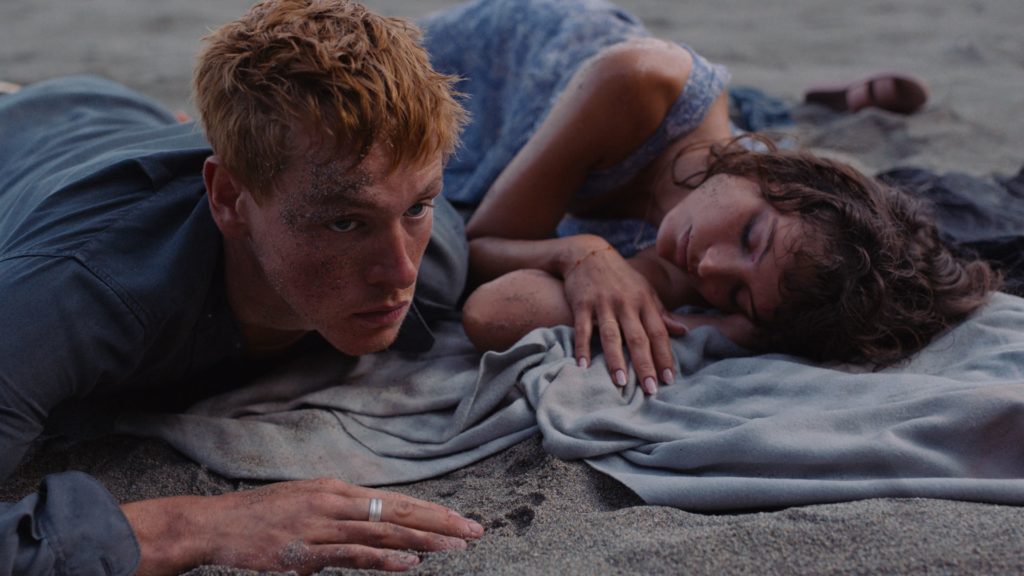
We follow the power couple of Carl (Harris Dickinson), a male model, and Yaya (Charlbi Dean), an Instagram influencer, as they experience a catastrophic trip on board an ultra-expensive yacht cruise. They cross paths first with the billionaires who rely on the lower class for basic functioning, then also with the laborers who tend to the wealthy, culminating in some outrageous physical set pieces. If this sounds like Parasite but on a boat and not as good… bingo!
Of the three stories, the first, titled “Carl and Yaya,” is the best — also the shortest and least characteristic of the rest of the film. We follow the couple during an argument at a restaurant about who pays for the bill. It’s a dissection of the pettiness of wealthy people that’s a recurring theme through the film — although money is nothing to them, it’s also everything to them. This segment made me think of Godard’s A Woman is a Woman in the way it gracefully, almost rhythmically, uses physical spaces and props to punctuate the argument — in this case, an elevator door opening and closing.
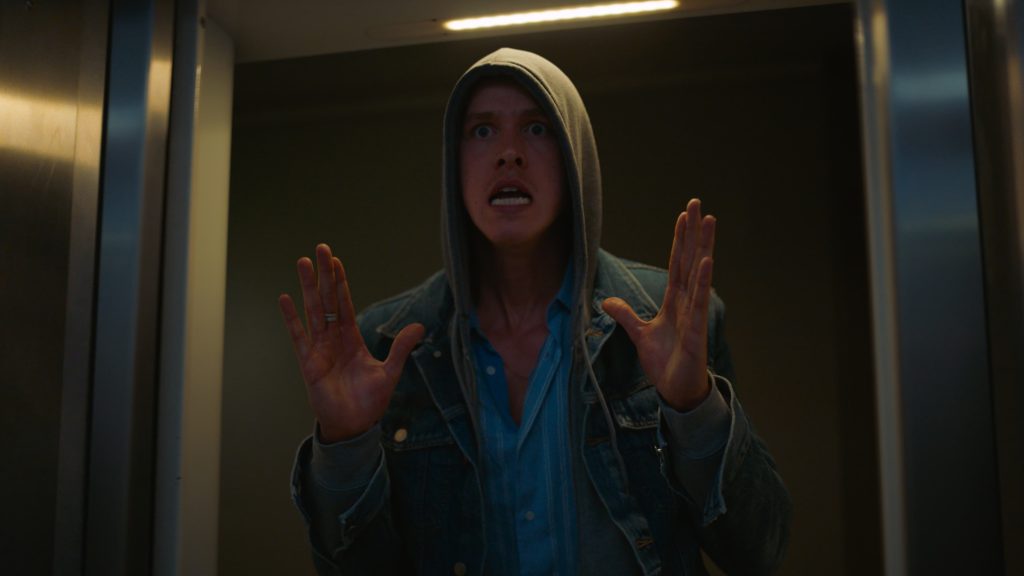
The second story, and the longest, is “The Yacht.” The couple boards a fancy cruise attended by billionaires, where the staff is bound by the whims of the attendees. One of the wealthiest patrons insists that the staff and guests swap places for an afternoon, with the guests handing out towels as the staff is forced to swim in the pool for “leisure.” All of this is darkly funny and a bit obscene, but what puts it over the top is the way it culminates in one of the most brutal bits of gross-out humor I’ve ever seen (at least in a film that has the air of prestige). I can’t quite say I enjoyed the bodily functions depicted, per se, but I admired how much the movie leaned into dehumanizing the guests, much the same way the lower-class staff is belittled on continuous basis.
Woody Harrelson pops up during this section as the alcoholic captain, and I couldn’t quite figure out the purpose of his character, charming though Harrelson always is. During the gross-out scenes, he drunkenly grabs the microphone and rambles Marxist talking points for the whole boat to hear. It adds an extra layer of unpleasantness — I can’t imagine hearing someone slur their politics over a loudspeaker while you’re seasick would be anything other than torture.
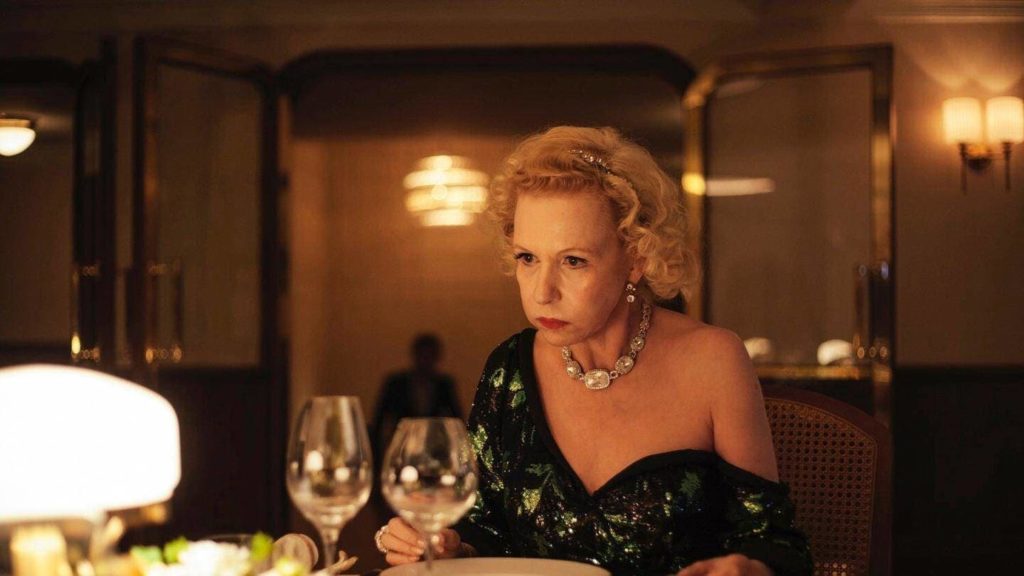
The final act, The Island, sees both the crew and passengers abruptly stuck in a survival situation. I suppose it’s probably as good as the rest of the movie, and it includes a remarkable turn by Dolly De Leon, who is getting well-deserved Oscar buzz, but at this point, my patience with the film had run thin. The very ending is a nasty exclamation point about the upper class’s desperation to cling to power, but it’s not quite clever or powerful enough for the extra hour of the movie to be worth it.
The production of Triangle of Sadness is precise and polished. This is my first Ruben Östlund film, and I can see why he might be divisive. There’s a clean, controlled look and flow to the film; if only he’d applied the same discipline to his storytelling and kept the film trim.
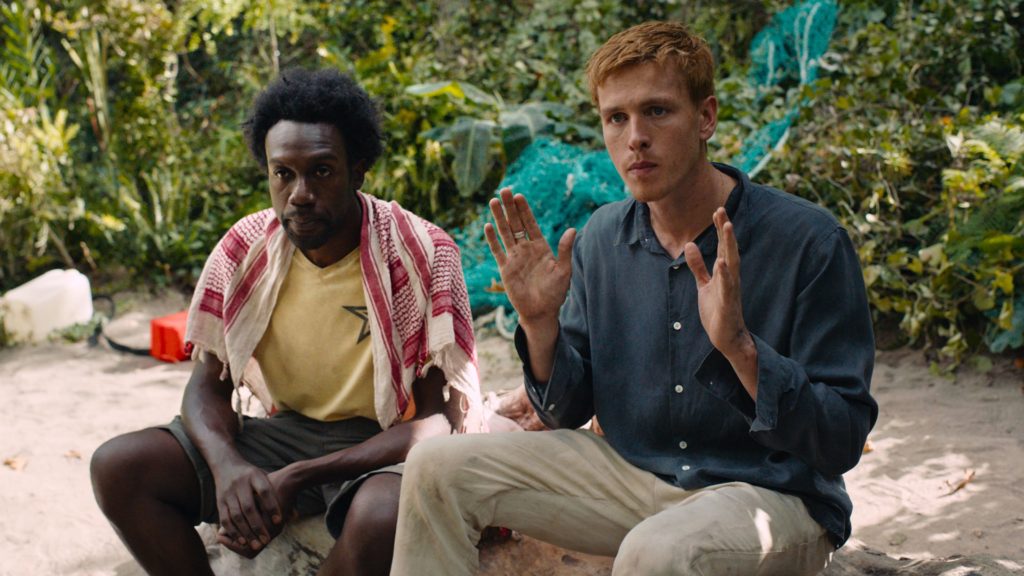
Triangle of Sadness’s profile has been defined largely by two factors. First is its Palme d’Or victory — the second for an Östlund film, putting him in rare territory. The film also bears the unfortunate shadow of the abrupt passing of Charlbi Dean, who stars as Yaya, shortly before the film’s release. This was set to be a breakout role for her.
The film itself, though, is equal parts satisfying and frustrating, tilted very slightly towards “satisfying.” Even in spite of that damn runtime.
- Review Series: 2022: Year in Film
Is It Good?
Good (5/8)
Dan is the founder and head critic of The Goods. Follow Dan on Letterboxd. Join the Discord for updates and discussion.

